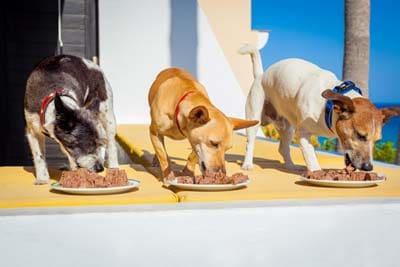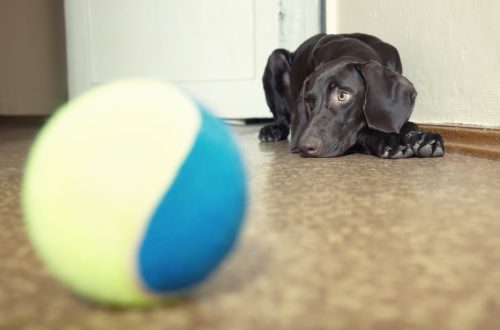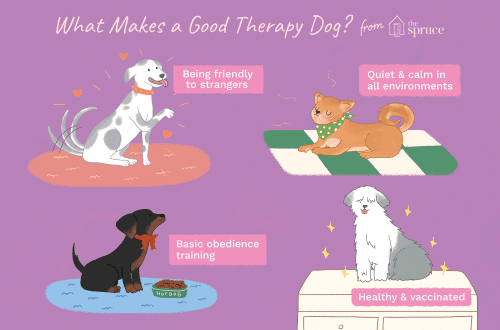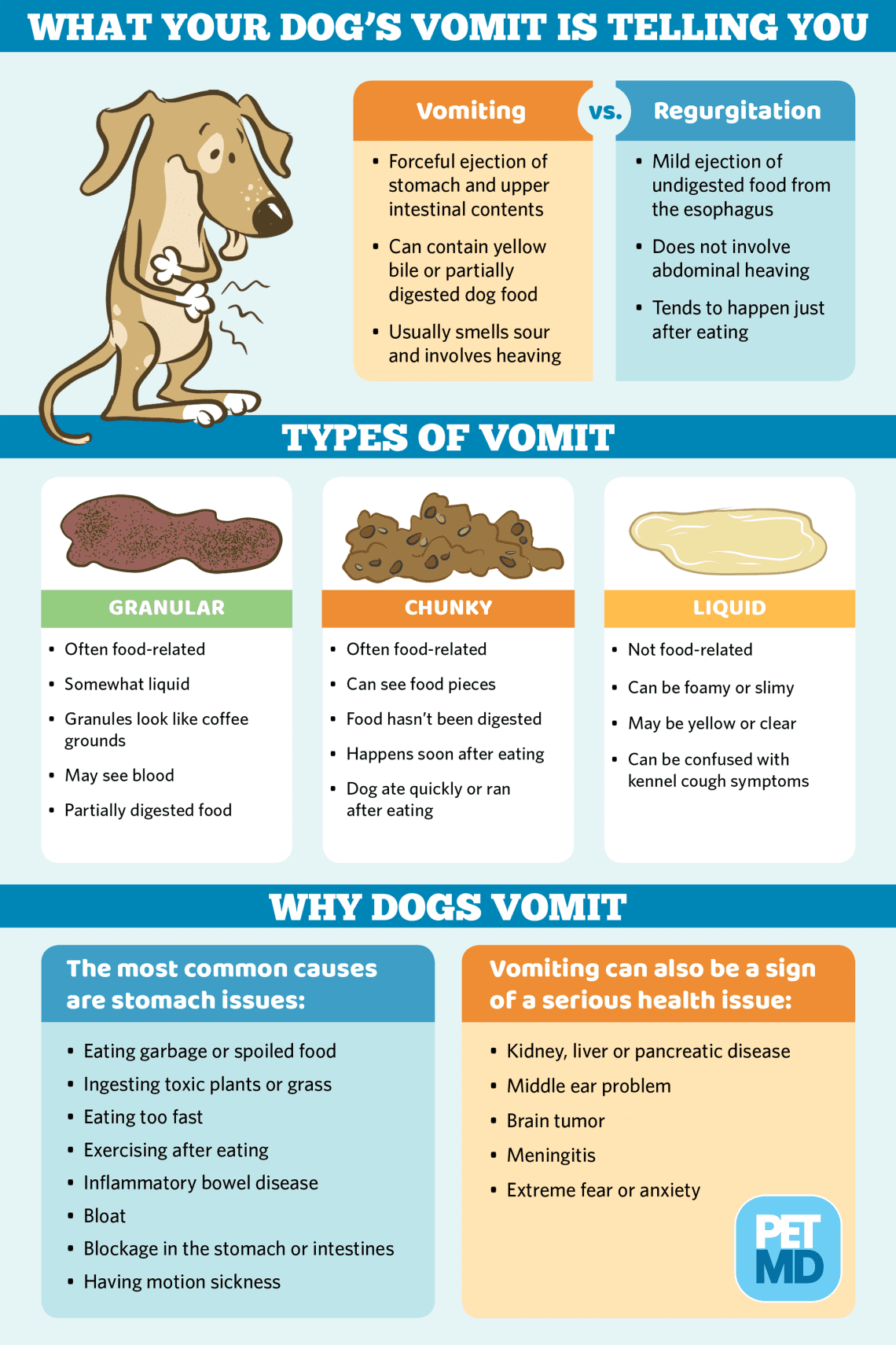
Why do dogs vomit after eating?
Does your dog vomit after eating? If your dog is vomiting after eating, there is indeed cause for concern. These can be signs of stomach problems and more.
To get started, answer these simple questions: Have you changed your food recently? Have you had conflicts with other pets over food? Did the dog eat grass before?
Here are just a few possible reasons why a dog may have an “upset” stomach after eating. Next, we will detail why this happens and whether you need to visit a veterinarian.
Contents
Switching to a new food
A sudden change in diet can lead to digestive problems. Thus, a sudden transition to a new type of diet (for example, from dry to wet) or to diets from another manufacturer can cause a dog to “irritate” the stomach. That’s why it’s important to transition your dog to a new food slowly, over 7-10 days. Please consult with your veterinarian before deciding to change food. If you continue to see signs that your dog is vomiting and has other signs of indigestion, you should take him to the veterinarian as soon as possible. She may have a food allergy or food intolerance, or a more serious illness (foreign body in stomach, systemic disease, etc.).
If you decide to switch to Hill’s, be sure to start with small portions and gradually increase the amount until it becomes your dog’s only food.
The dog is nervous and eats too fast
Although many pet owners believe that post-eating vomiting in dogs is caused by food sensitivities (food allergies, etc.), this is not always the case. Vomiting can be caused by anxiety or fear. Do your dogs have food conflicts? Being in “foreign” territory can force them to eat faster, causing too much food to end up in the stomach and less saliva to be swallowed along with the food, which plays an important buffering role. As with humans, anxiety and stress can make a dog feel nauseous and increase stomach acid levels.
When a dog eats too fast, it doesn’t have time to properly chew large chunks or kibbles. She also swallows a significant amount of air. All this can cause belching or vomiting. If possible, it is recommended to feed more “experienced” dogs in a secluded area, separate from other animals. Start with small portions and as soon as you see that the dog has become calmer, gradually increase their size until the dog again receives his usual portion.
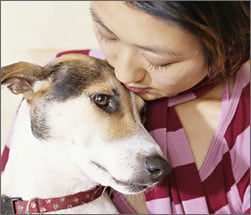
Food may “not lie in the stomach” of the dog, including if he is nervous and worried for some other reason. Has anything changed in your home that could disrupt your dog’s daily routine? Have you recently moved or changed your work schedule? Such changes can cause anxiety in the dog, and, as a result, problems with the digestive system. If you have any reason to believe that these changes are causing your dog to feel sick, be sure to show your dog your affection. Praise her, caress her, play with her and convince her that everything is in order. Gradually, over time, she will get used to the changes and everything will become as before. It’s still important to keep an eye on how your dog eats to make sure there aren’t any bigger problems – if he’s throwing up more than once every few weeks, see your veterinarian. Vomiting is most often the result of health problems and is less commonly caused by anxiety.
Dog loves the taste of food
The dog may eat too fast not only because of stress, but also because he likes the taste of the food. Of course, there is nothing wrong with the fact that he loves food, but you need to make sure that the dog gets as much food as he can digest.
One way to remedy the situation in this case is to feed the dog in small portions until you are sure that he began to eat a little more slowly. Another option is to distribute the portion of food on a large flat plate or on a tray or baking sheet. This will force her to search longer and eat each piece individually, reducing the likelihood of vomiting after eating. There are also special puzzle toys for dogs that make them work hard to get food. This is both a good exercise for the pet and a way to make it eat more slowly. But in this case, you must carefully ensure that the dog still eats the entire recommended daily allowance, and this new, complex feeding system does not lead the animal to starvation and frustration.
The dog recently ate grass
While most dogs eat grass without any ill effects, animals that have health problems can eat grass by deliberately inducing themselves to vomit and regurgitating stomach contents to relieve the feeling of nausea and the possible cause of the condition. After the dog vomits grass and food, it should feel better, and if this is a simple irritation of the walls of the stomach, additional veterinary care is most often not required. Just remember to provide your dog with enough water, make sure that he does not vomit again, and also carefully monitor the general condition of the pet.
If the vomiting that occurs after the dog has eaten grass and food does not stop, you need to take it to the veterinary clinic for first aid as soon as possible, because. it could be a symptom of a serious illness. It can be both infectious and systemic disease, and even be a sign of the presence of a foreign body or even gastric volvulus. Whatever caused vomiting, qualified help will be required to improve the condition.



